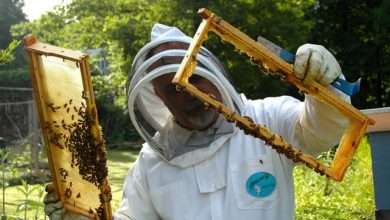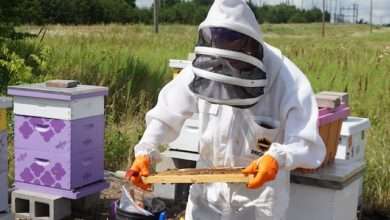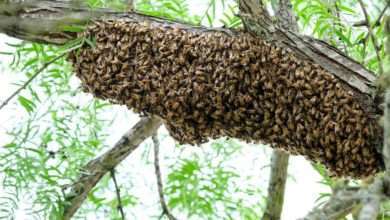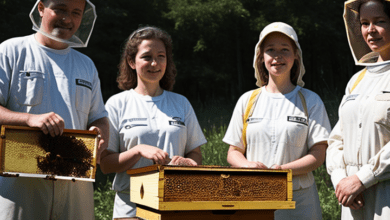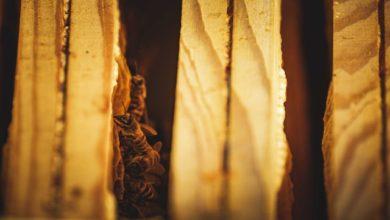Beekeeping in Malta

Malta, an archipelago of seven islands located in the Mediterranean Sea, is well known for its sun-kissed beaches, crystal clear waters, and vibrant nightlife. But what many don’t know is that Malta has a thriving apiary culture that dates back centuries. From beekeeping to making a variety of honey-based products, beekeeping in Malta has an interesting history and a bright future.
Beekeeping has been practiced throughout the world for centuries and the Maltese have been involved in it since antiquity.
History of Beekeeping in Malta
Beekeeping has a long and rich history in Malta, dating back to ancient times. This article explores the origins of beekeeping in the region and sheds light on the traditional methods used by the Maltese beekeepers. Delving into the past, we uncover a fascinating tale of the relationship between humans and bees in Malta.
- Ancient Origins of Beekeeping in Malta
The practice of beekeeping can be traced back to the ancient civilizations that once thrived on the Maltese islands. Archaeological evidence suggests that beekeeping was already well-established during the Phoenician and Roman periods, around 200 years ago. These civilizations recognized the value of honey and its by-products, paving the way for the development of apiculture on the islands.
Inscriptions and artworks found in ancient ruins depict scenes of beekeepers tending to their hives, highlighting the importance of this practice in the daily lives and economies of these early communities. The ancient Maltese people revered the bees for their ability to produce honey, wax, and other valuable substances.
- Traditional Beekeeping Methods in Malta
Throughout history, the Maltese have preserved and passed down their traditional beekeeping methods, keeping this art alive through generations. These methods often emphasize a deep understanding of the bees’ natural behaviors and the environment in which they flourish.
One traditional technique employed by the Maltese beekeepers involves using cylindrical, straw beehives known as “kotba.” Made from dried stalks of a local plant called “qassatat,” these hives are lightweight and allow for excellent ventilation. The kotba are usually stacked on top of each other, forming multi-tiered beekeeping structures.
The skillful placement of these beehives is another essential aspect of Maltese beekeeping. The beekeepers carefully position them in harmony with the surrounding flora, ensuring that the bees have abundant access to nectar sources. This method relies on the bees’ natural foraging behavior, enhancing their productivity and resulting in high-quality honey.
Furthermore, the Maltese beekeepers have mastered the art of swarm management – a crucial aspect of sustaining bee colonies. When a hive becomes overcrowded, causing a swarming phenomenon, the skilled beekeepers carefully collect the swarms and relocate them to new hives. This method not only prevents the loss of valuable bee populations but also allows the beekeepers to increase the number of hives under their care.
The Relationship Between Bees and the Maltese People
Beekeeping in Malta has long been more than a means of honey production; it holds cultural and social value too. The traditional art of beekeeping is deeply intertwined with Maltese folklore, traditions, and even religious beliefs. Bees are often seen as symbols of diligence, harmony, and the sweet rewards of hard work.
Moreover, the Maltese people have recognized the significance of bees for pollination, vital for the health of their agricultural practices. Farmers have relied on the bees’ services, fostering a mutualistic bond that benefits both the bees and the prosperity of the local ecosystems.
The Ecological Importance of Bees in Malta
Bees are much more than just buzzing insects. They play a vital role in the ecosystem, particularly in the pollination of crops and wildflowers.
In Malta, bees have a significant impact on the rich biodiversity found within its unique ecosystem. Understanding the ecological importance of bees is crucial for the preservation of Malta’s floral diversity and the sustainability of its agricultural sector.
The Role of Bees in Pollination
Pollination is the process by which pollen is transferred from the male parts of a flower to the female parts, leading to fertilization and the production of seeds. Bees are remarkable pollinators due to their feeding habits and body structures, facilitating the spread of pollen from one flower to another. As bees collect nectar and pollen from flowers, they inadvertently transfer pollen grains, enabling cross-pollination.
Bees, both wild and managed, are essential pollinators for various crops cultivated in Malta. They contribute to the production of fruits, vegetables, and nuts, enhancing crop yields and quality. Without bees, many plants would struggle to reproduce, resulting in reduced agricultural productivity and potential food shortages.
Impact on Malta’s Biodiversity
Malta boasts a rich biodiversity despite its small size, with a wide variety of native plants and wildflowers. Bees play a significant role in supporting this natural diversity through their pollination activities. By transferring pollen between different plant species, bees facilitate genetic exchange and promote the growth of a diverse array of vegetation in Malta’s ecosystems.
Wildflowers, in particular, rely heavily on bees for pollination. The wide range of flowering plants found in Malta provides essential resources for bees, such as nectar and pollen. In turn, the bees aid in the reproduction of these plants, ensuring their survival and contributing to the overall ecological balance.
Bees also contribute to the conservation of rare and endangered plant species in Malta. Due to their efficient pollen transfer abilities, bees can reach remote or isolated areas, where other pollinators may struggle to reach. This makes bees essential for the reproduction of plants that might otherwise face a higher risk of extinction.
Preserving Bees and Their Habitat
Given the crucial role bees play in pollination and maintaining Malta’s biodiversity, it is essential to protect them and their habitat. Several measures can be taken to support bee populations and preserve their role in the ecosystem:
- Creating pollinator-friendly environments: Encouraging the cultivation of bee-friendly plants and protecting natural habitats will help provide bees with a suitable habitat and sufficient food sources.
- Minimizing pesticide use: Limiting the use of harmful pesticides and adopting alternative pest management strategies can protect bees from their detrimental effects.
- Raising awareness: Educating the public on the ecological importance of bees can promote appreciation and understanding, leading to increased support for their conservation.
Beekeeping Practices and Techniques Specific to Malta
Beekeeping in Malta offers a unique set of challenges and advantages due to the island’s climate and landscape.
Overview of the Local Beekeeping Industry
The beekeeping industry in Malta plays a significant role in the agricultural sector, contributing to the production of honey, beeswax, and royal jelly. Beekeeping has a rich history on the island, with traditional techniques dating back centuries. Today, there is a growing interest in beekeeping, both as a hobby and as a sustainable business venture.
- Historical significance: Beekeeping in Malta has been practiced since ancient times, with evidence dating back to the Roman era. The island’s fertile lands and diverse flora have always provided favorable conditions for the establishment of vibrant honeybee populations.
- Economic importance: The production of honey and related bee products contributes to the local economy through sales in domestic and international markets. Moreover, beekeeping plays a crucial role in pollination, benefiting Malta’s agricultural sector.
Unique Challenges and Advantages of Beekeeping in the Maltese Climate and Landscape
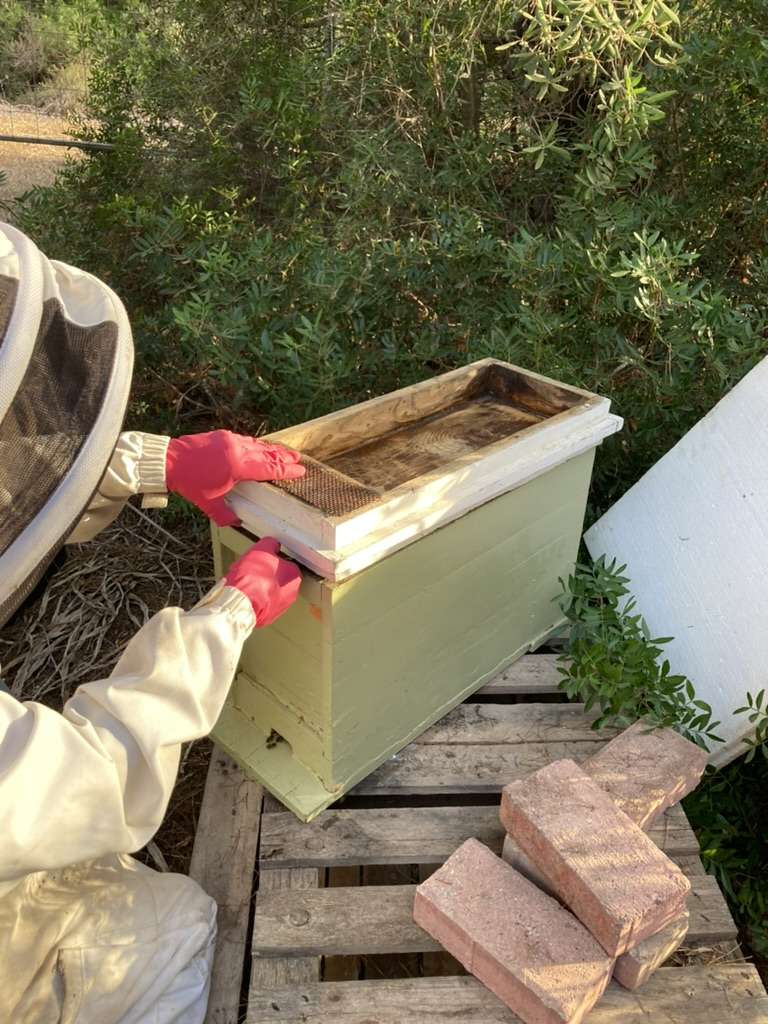
The Maltese climate and landscape present beekeepers with both opportunities and obstacles. Understanding these factors is vital for successful beekeeping in Malta.
- Climate: Malta boasts a Mediterranean climate characterized by hot, dry summers and mild winters. While this pleasant weather often benefits honey production, excessive heat and aridity during peak summer months can stress honeybee colonies and reduce nectar availability.
- Limited floral resources: Due to the island’s size and arid environment, the availability of diverse floral resources can be a challenge. Beekeepers need to be strategic in their hive placement and provide supplementary feeding to ensure colonies have access to sufficient nectar and pollen sources throughout the year.
Preferred Bee Species and Hive Setups for Malta
Selecting the appropriate bee species and hive setups is crucial to suit Malta’s unique climate and landscape. The following considerations should be taken into account:
- Maltese Dark Bee (Apis mellifera ruttneri): The Maltese Dark Bee, also known as Apis mellifera ruttneri, is a subspecies of the honeybee that is indigenous to Malta. Adapted to the local environment, these bees have dark bodies and exhibit a gentle temperament. The Maltese Dark Bee has faced significant challenges due to introduced species, disease, and changes in land use, leading to a decline in its population. Conservation efforts have been put in place to protect this unique Maltese bee, as it plays a crucial role in maintaining the island’s biodiversity.
- Apis mellifera ligustica (Italian honeybee): This subspecies of honeybee is well-suited to the Maltese climate. Italian honeybees are known for their gentle nature, high honey production, and ability to adapt to varying conditions.
- Langstroth hives: The Langstroth hive system is commonly preferred in Malta due to its modular design, allowing for better management and ease of use. This hive type enables beekeepers to monitor colony health and perform necessary colony manipulations efficiently.
- Hive placement: It is essential to position hives in locations with access to diverse floral resources, considering the limitations of the Maltese landscape. Coastal areas and rural regions with access to agricultural fields can provide valuable forage for bees.
Regulations and Support for Beekeepers in Malta
To ensure the proper management of beekeeping activities, the Maltese government has established legal regulations and initiatives to support beekeepers.
Legal Requirements for Beekeeping in Malta
Beekeeping in Malta requires adherence to specific legal regulations to protect the health and safety of bees, beekeepers, and the environment. Some important legal requirements include:
- Registration: All beekeepers must register their apiaries with the Department of Agriculture, Fisheries and Rural Development (DAFRD). Registration ensures that the government is aware of the location and number of apiaries in the country.
- Hive Identification: Each beehive must be clearly marked with a unique identification number provided by DAFRD. This helps in monitoring and identification of individual apiaries during inspections and disease control measures.
- Disease Control: Beekeepers are required to implement disease control measures to prevent the spread of contagious bee diseases. Regular inspections by DAFRD officials help identify and manage diseases effectively.
- Hive Placement: Beehives should be appropriately positioned to ensure safety, minimize conflicts with neighboring properties, and maintain environmental standards. Adequate distance from public spaces, property boundaries, and water sources should be maintained.
Government Initiatives and Support for Beekeepers:
Recognizing the importance of beekeeping in Malta, the government has introduced various initiatives to encourage and support beekeepers. Some notable initiatives include:
- Beekeeping Training: The government, through DAFRD, offers training programs and workshops to educate beekeepers on best practices, disease prevention, hive management, and honey production techniques. These programs aim to enhance the skills and knowledge of beekeepers for sustainable practices.
- Financial Support: Beekeepers in Malta can benefit from financial support in the form of grants and subsidies for the procurement of necessary equipment, hive maintenance, and disease control measures. These financial incentives aim to reduce the financial burden on beekeepers and promote the growth of the sector.
- Research and Development: The government invests in research and development projects related to beekeeping. The aim is to enhance beekeeping practices, breed disease-resistant bee colonies, and develop innovative techniques for honey extraction and processing. Collaborations with research institutions and experts contribute to continuous improvements in the sector.
- Market Development: To assist beekeepers in marketing their honey and honey-related products, the government supports the promotion of local honey through various initiatives. These include participation in agricultural fairs, food festivals, and the establishment of local honey markets. The government also provides guidance on packaging and labeling requirements to ensure compliance with industry standards.
Exploring the Economic Benefits of Beekeeping in Malta
The Economic Benefits
Honey Production:
- Beekeeping in Malta primarily revolves around the production of high-quality honey. With its unique climate and diverse flora, Malta provides an ideal environment for bees to thrive and produce honey with distinct flavors and characteristics.
- The local honey market is expanding rapidly, both domestically and internationally. Maltese honey is highly sought after, attracting both local customers and tourists looking for genuine, locally produced goods.
- Beekeepers who focus on honey production have found a profitable market niche, with the potential for scaling their operations and increasing their income.
Pollination Services:
- Bees play a crucial role in pollination, a critical process for agriculture and plant reproduction. As Malta has a substantial agricultural sector, the presence of bees is vital for ensuring successful crop yield and quality.
- Through their daily foraging activities, honeybees enhance pollination rates, leading to higher crop productivity. This, in turn, benefits farmers and enables them to generate higher revenues from their produce.
- By providing pollination services, beekeepers can establish partnerships with farmers, creating a mutually beneficial relationship that supports both sectors financially.
Value-added Products:
- While honey remains the primary focus of most beekeepers in Malta, there are numerous value-added bee products that can diversify their income streams. These include beeswax, propolis, royal jelly, and pollen.
- Beeswax, for instance, is used in candle-making and cosmetics, offering an additional avenue for revenue generation. Beekeepers can explore the production and sale of these products, catering to niche markets and increasing their overall profitability.
Tourism and Education:
- Beekeeping has become a notable attraction for tourists visiting Malta, providing an excellent opportunity for beekeepers to expand their reach and generate supplementary income.
- Some beekeepers offer guided tours and educational workshops, sharing insights into the art of beekeeping and the importance of bees in our ecosystem. Tourists and locals alike are eager to engage in immersive experiences and learn about sustainable practices.
- These tourism and educational endeavors contribute to the local economy, while also fostering environmental awareness and promoting the value of beekeeping as a sustainable livelihood.
Challenges and Future Prospects for Beekeeping in Malta
Beekeeping in Malta faces numerous threats that have resulted in significant challenges for beekeepers in the region.
Addressing Climate Change:
- Rising temperatures: Malta, like many other regions, is experiencing a rise in temperatures due to climate change. This increase can have detrimental effects on bee populations, disrupting their natural behaviors and life cycles.
- Altered precipitation patterns: Changes in rainfall patterns can affect both the availability of floral resources for bees and the quality of nectar and pollen. This can impact the overall health and productivity of bee colonies.
- Habitat loss: Climate change also contributes to habitat loss, as rising sea levels and extreme weather events can lead to the destruction of crucial bee habitats, such as coastal areas and meadows. Protecting and restoring these habitats is essential for supporting bee populations.
Pesticide Use:
- Agricultural practices: The use of pesticides in agricultural activities poses a significant threat to bees. These chemicals can contaminate the nectar and pollen that bees collect, impairing their health and reproductive capabilities.
- Lack of regulation: Malta lacks comprehensive regulations regarding the use of pesticides, leading to potential overuse and improper application. This further endangers bee populations and highlights the need for stricter pesticide control measures.
- Promoting sustainable practices: Encouraging organic farming methods and integrated pest management strategies can minimize the impact of pesticide use on bees. Supporting education and awareness campaigns can also play a crucial role in promoting responsible pesticide practices.
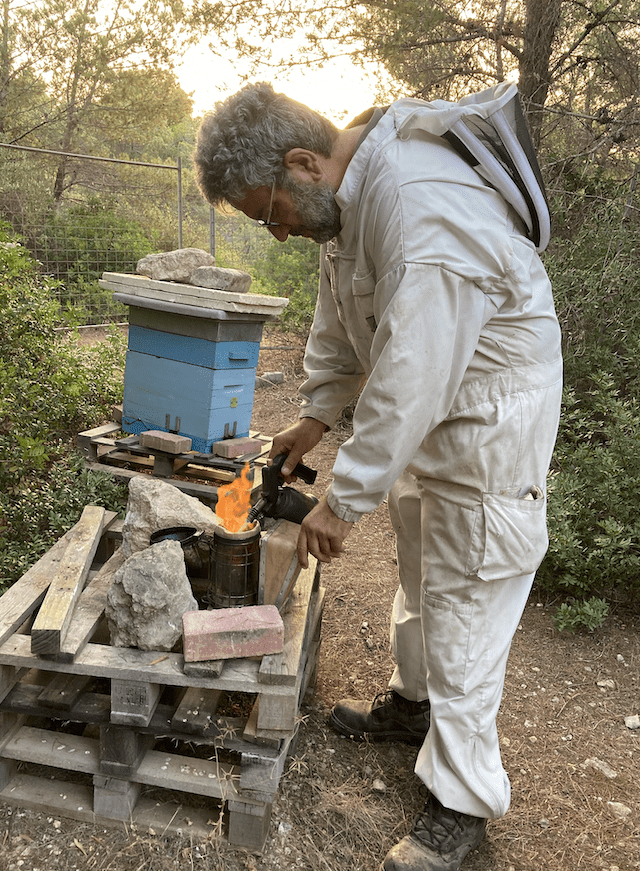
Potential Solutions and Future Prospects:
- Promoting bee-friendly initiatives: Educating the public about the vital role of bees and the threats they face can help foster a culture of bee-friendly practices. This can include creating bee-friendly gardens, reducing pesticide use in residential areas, and planting pollinator-friendly flowers.
- Strengthening beekeeping associations: Collaborative efforts among beekeepers, researchers, and policymakers are essential for addressing the challenges faced by beekeeping in Malta. By joining forces, these stakeholders can work towards enacting necessary regulations, implementing conservation measures, and sharing best practices.
- Encouraging research and innovation: Investing in research on bee health, climate change adaptation strategies, and sustainable beekeeping techniques is crucial for the long-term success of the industry. Innovation in hive design, disease management, and bee breed selection can help beekeepers thrive in the face of challenges.
Conclusion
Beekeeping is an important part of Maltese history and culture. From its roots in antiquity to its resurgence today, the practice of beekeeping has a long and rich history in Malta. Beekeeping can provide a source of income for both individuals and businesses, and it can also help to protect local ecology.
Beekeepers in Malta must follow certain regulations and those wishing to start beekeeping must apply for a license from the Department of Agricultural and Land Resources. The Beekeeping Cooperative of Malta provides beekeepers with resources and support, and Maltese beekeepers can produce a variety of honey-based products, from mead to honey wine.
